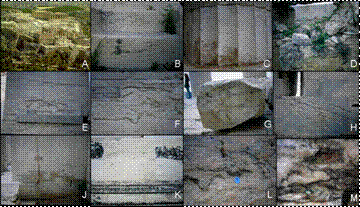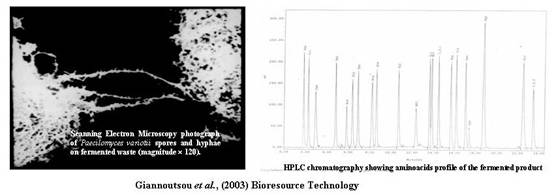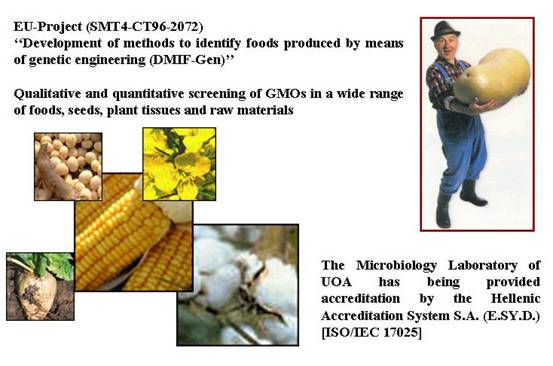Research interests
Recent research
is focused on actinomycetes microbial diversity and activity in
Greek habitats. Projects involve isolation of new indigenous
actinomycete populations from different types of Greek soil, see
water and polluted areas, and screening of the new isolates for
producers of bioactive compounds of scientific/commercial interest.
The above research led to many collaborations with pharmaceutical
companies.




Additionally, we are interested in studying the survival of indigenous and laboratory strains in soil. Establishment of phenotypical, physiological, and molecular methods for monitoring the survival and activity of Streptomyces strains in sterile and non-sterile soil have been developed. The ecology of streptomycete plasmids and the methods for detection of transferable plasmids from freshly isolated strains followed by characterization of plasmids and host genetic background are of major interest in our laboratory.

Other research work focuses on the study of deterioration of the Acropolis and other monument marbles. Ιn situ deterioration of stone in monuments is a combined process caused by physical, chemical and biological factors. The relative importance of each factor varies according to topoclimatic environmental conditions, the stone type, its preservation state and its location on the monument. Our aim is to analyze the structure of the bacterial community related to the biodeterioration of the monuments. During seasonal samplings from many sites that bore chromatic and structural alterations, several chemolithotrophic bacteria have been identified by 16S rDNA gene sequencing, isolated and characterized through enrichment cultures of selective media.

Further research
aspects are focusing on microbial treatment of wastes and
collaborations have been established with several industries and
institutions. Various projects include the recovery of chromium from
tannery wastes through microbial fermentation, the enrichment of
olive oil wastes with fungal-yeast protein and the subsequent amino
acid production, or the upgrading of total ingredients of the carob
beans, using economical and environmental friendly technologies.

The bacterial and cyanobacterial phylotypes diversity is also under investigation in drinking water reservoirs, recreation waters and sand. In parallel, members of the research group have developed an expertise on methods concerning the detection of genetically modified organisms (GMOs) in food, also certified by the European Committee for Standardization CEN/TC 275 “Food analysis-Horizontal Methods” (CEN/ TC 275/WG 11 “Genetically modified foodstuffs”), a fact that allows future research approaches at the level of food microbiology.

